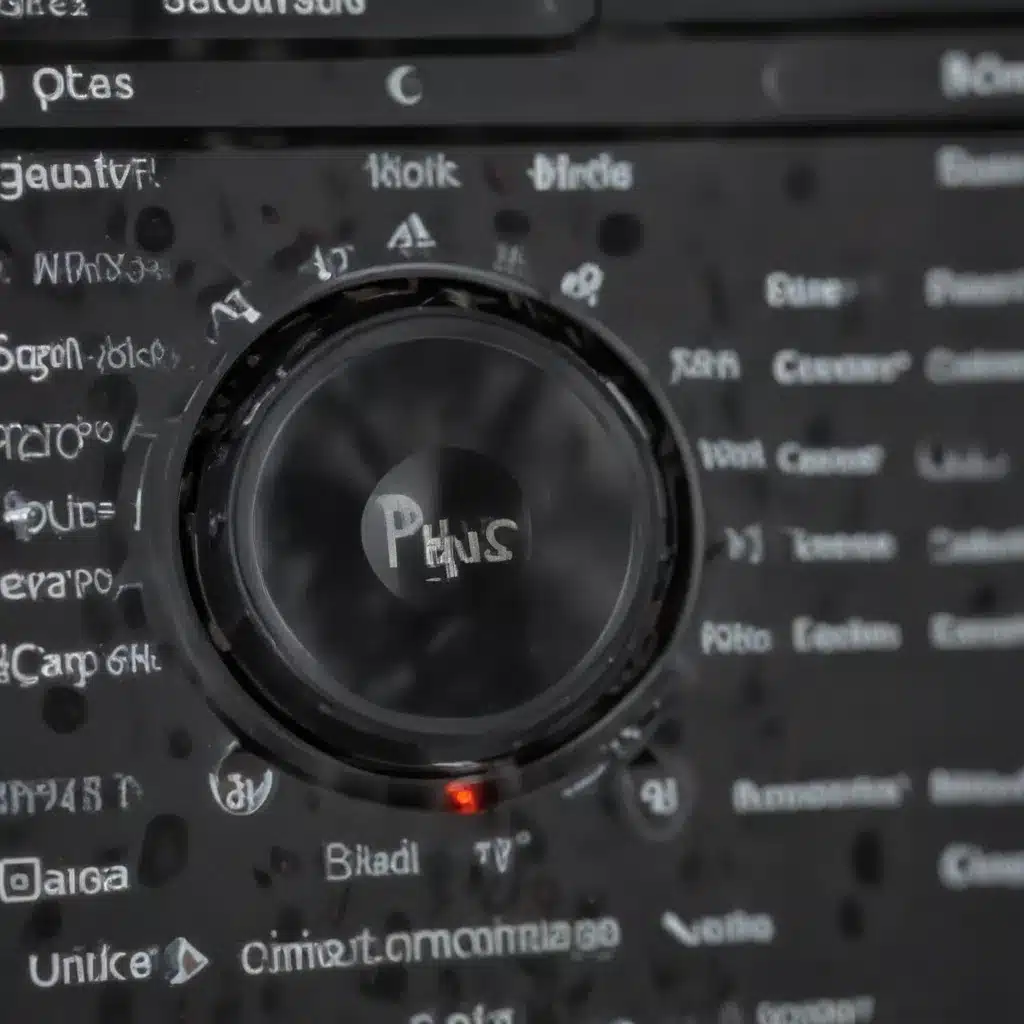
PC Hardware Components
At the heart of your PC’s audio capabilities lies the sound card, the dedicated hardware component responsible for processing and delivering sound to your speakers or headphones. While modern motherboards often include integrated sound chips, dedicated sound cards can provide superior audio quality, especially for more demanding applications like music production or high-end gaming.
Alongside the sound card, the audio drivers installed on your system play a crucial role in ensuring optimal audio performance. These drivers act as the intermediary between your hardware and the operating system, translating commands and ensuring seamless communication. Outdated or incompatible drivers can lead to a host of audio issues, from crackling and popping to complete sound failure.
Audio codecs are another essential piece of the puzzle. These software-based algorithms are responsible for encoding and decoding digital audio data, allowing your system to interpret and reproduce the sound you hear. Compatibility between your audio hardware, drivers, and the installed codecs is crucial for maintaining high-quality audio.
Audio Software Configuration
The software settings on your PC can also have a significant impact on your audio quality. Media players, such as VLC, Windows Media Player, or even your web browser’s audio playback, often come with their own audio configuration options. Adjusting settings like sample rate, bit depth, and audio enhancements can help fine-tune the sound to your preferences.
The system’s sound mixer, accessible through the control panel or dedicated audio software, provides a powerful tool for managing individual audio levels, balancing the volume between different applications, and troubleshooting any imbalances. Additionally, advanced audio equalizers allow you to shape the frequency response, boosting or cutting specific bands to achieve the desired sonic profile.
Diagnosing Audio Issues
Hardware-related Problems
One of the first steps in addressing audio quality issues is to identify the root cause. Hardware-related problems can stem from a faulty sound card, outdated audio drivers, or even conflicts with other system components.
If you suspect a problem with the sound card itself, you can try swapping it out with a known working unit or testing the card in another system. Alternatively, you can consult the manufacturer’s documentation or online resources to ensure the card is properly seated and configured within your PC.
Outdated audio drivers can also lead to a host of audio problems, from distortion to complete sound failure. Regularly checking for driver updates from the sound card manufacturer or your operating system’s update channels can help resolve these issues.
Software-related Problems
On the software side, conflicts between audio applications or incorrect system settings can contribute to poor audio quality. Ensure that only one primary audio application is active at a time, as multiple programs vying for audio control can result in interference or dropped audio.
Additionally, double-check your system’s audio settings, including the default playback and recording devices, sample rates, and any enabled audio enhancements. Mismatched or conflicting settings can cause audible artifacts, such as crackling, popping, or muffled sound.
Fixing Audio Quality Problems
Hardware Troubleshooting
If the root cause of your audio quality issues lies within the hardware, the first step is to ensure your sound card is functioning properly. Consider replacing the sound card with a newer, high-quality model if the existing one is malfunctioning or unable to deliver the desired audio performance.
Updating the audio drivers is another crucial step in resolving hardware-related problems. Visit the sound card manufacturer’s website or your operating system’s update channels to download and install the latest drivers, which may address compatibility issues or fix known bugs.
Software Optimization
When dealing with software-related audio problems, start by optimizing your media player’s configurations. Adjust settings like sample rate, bit depth, and any available audio enhancements to find the optimal balance between sound quality and system performance.
Delving deeper into the system’s audio settings, ensure that the correct playback and recording devices are selected as the default, and that any conflicting or unnecessary audio applications are disabled or uninstalled. This can help eliminate software-driven interference and improve overall audio quality.
Advanced Audio Enhancements
For those seeking even greater control over their audio experience, there are various advanced tools and techniques available.
Audio Post-processing
Audio post-processing software, such as noise reduction and audio normalization tools, can significantly improve the quality of your audio by addressing common issues like background noise, volume inconsistencies, and dynamic range problems. These tools allow you to fine-tune the audio signal, enhancing clarity and delivering a more polished listening experience.
Specialized Audio Tools
For audiophiles or professionals, specialized audio software can provide a deeper level of control and customization. These applications often include advanced equalizers, surround sound emulation, and even room acoustic simulation features, allowing you to tailor the sound to your specific needs or listening environment.
By exploring these hardware and software-based solutions, you can unlock the full potential of your PC’s audio capabilities, ensuring a consistently high-quality listening experience, whether you’re gaming, streaming music, or engaging in multimedia production.
Remember, the journey to perfect audio quality on your PC is an ongoing process, and it may require a combination of hardware upgrades, software optimization, and personalized tweaks. With the right tools and a bit of troubleshooting, you can elevate your audio experience to new heights.
If you’re still experiencing persistent audio issues or require further assistance, consider visiting ITFix.org.uk for a wealth of IT-related resources and expert guidance.












